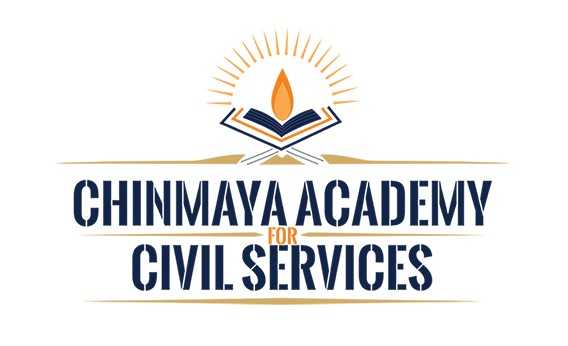Who are eligible for UPSC exam
Are you ready to embark on a journey towards serving your country with honor and dedication? The UPSC exam stands as a gateway for those aspiring to join the prestigious civil services of India. But who exactly is eligible to take this crucial step towards shaping the nation’s future through governance and leadership? Let’s dive into the essential criteria that determine whether you can pursue your dreams through the online UPSC exam.
Eligibility Criteria for UPSC Exam
Introduction to UPSC Exam
The UPSC exam, conducted by the Union Public Service Commission, is one of the most prestigious and challenging exams in India. To be eligible to appear for this exam, candidates must meet certain criteria set by the commission.
Citizenship Requirement
Candidates applying for the UPSC exam must be either a citizen of India, a subject of Nepal or Bhutan, or a Tibetan refugee who came to India before January 1, 1962.
Age Limit
For general category candidates, the minimum age limit is 21 years and the maximum age limit is 32 years. However, there are relaxations in upper age limits for reserved categories such as SC/ST/OBC and other specified categories.
Educational Qualification
Candidates must hold a bachelor’s degree from any recognized university or institution to be eligible for the UPSC exam. The degree can be in any discipline.
Categories of Eligible Candidates
Apart from general category candidates, reserved categories like Scheduled Castes (SC), Scheduled Tribes (ST), Other Backward Classes (OBC), and physically disabled candidates also have specific eligibility criteria outlined by UPSC.
- Citizenship requirement
When considering who is eligible to take the online UPSC exam, one of the key requirements is citizenship. To apply for the UPSC exam, candidates must be either a citizen of India or a subject of Nepal or Bhutan. Tibetan refugees who came to India before January 1, 1962, with the intention to settle permanently are also eligible.
For candidates from other countries, they may be allowed to take the exam if they have obtained Indian Citizenship through registration. However, certain conditions apply in such cases and it’s essential for aspirants to carefully review and understand these criteria before applying.
The citizenship requirement ensures that those taking the UPSC exam have a direct connection to India or its neighboring countries. This criterion plays a vital role in maintaining the integrity and purpose of this prestigious examination.
- Age limit
One crucial aspect of eligibility for the UPSC exam is the age limit. For general category candidates, the minimum age required is 21 years, while the maximum age limit is 32 years. However, there are relaxations in place for reserved categories and other specific groups.
For OBC candidates, a relaxation of up to 3 years in the upper age limit is provided. Similarly, SC/ST candidates can avail a relaxation of up to 5 years. Physically disabled individuals have further concessions based on their category.
It’s essential to carefully check and understand the specifics related to age limits before applying for the exam. Being mindful of these limitations will ensure that you meet all requirements without any discrepancies or issues during the application process.
- Educational qualification
When it comes to educational qualifications for the UPSC exam, candidates must hold a bachelor’s degree from a recognized university. The degree can be in any discipline of study, allowing individuals from diverse academic backgrounds to apply for the exam.
Having a solid educational foundation is crucial as it equips candidates with the necessary knowledge and skills to tackle the challenging syllabus of the UPSC exam. While there is no specific requirement regarding the field of study, having a strong grasp of subjects like history, geography, politics, and economics can be advantageous during preparation.
Candidates should focus on building a well-rounded understanding of various topics rather than limiting their studies to one particular subject area. This approach ensures they are equipped to handle the diverse range of questions that may appear on the exam.
Meeting the educational qualification criteria sets the stage for aspirants to showcase their intellectual capabilities and readiness to take on the rigors of civil service examinations.
Categories of Eligible Candidates
When it comes to the UPSC exam, there are different categories of eligible candidates. We have the General category candidates who need to meet the standard eligibility criteria set by the commission. Then, there are Reserved categories including SC, ST, and OBC candidates who have certain relaxations in age limit and educational qualifications.
Physically disabled candidates also fall under a separate category with specific guidelines for eligibility. It’s essential for all aspirants to carefully understand which category they belong to and ensure they meet the necessary requirements before applying for the exam. Each category has its own set of rules that applicants must adhere to in order to be considered eligible for the UPSC exam.
By knowing your category and understanding the eligibility criteria associated with it, you can better prepare yourself for a successful application process and ultimately increase your chances of clearing this prestigious examination.
- General category
Being part of the general category opens opportunities for a diverse range of individuals to pursue their dreams through the UPSC exam. Candidates from various backgrounds and experiences come together under this category, each bringing unique perspectives and strengths to the table.
General category candidates must meet the same eligibility criteria as others, showcasing their dedication and commitment to serving their country through civil services. It’s essential for these aspirants to stay focused on their goals, putting in consistent effort towards preparing for the exam.
With determination and hard work, general category candidates can compete alongside peers from different categories on a level playing field. The UPSC exam rewards merit and capability above all else, giving everyone an equal chance to succeed based on their skills and knowledge.
Being part of the general category in the UPSC exam is not just about competition but also about personal growth and learning throughout the journey towards achieving one’s aspirations.
- Reserved categories (SC, ST, OBC)
In the UPSC exam, candidates belonging to reserved categories like Scheduled Castes (SC), Scheduled Tribes (ST), and Other Backward Classes (OBC) have certain relaxations in eligibility criteria. This is aimed at promoting diversity and inclusivity in the civil services.
For SC and ST candidates, there is a relaxation of up to 5 years in the upper age limit compared to general category candidates. OBC candidates also benefit from age relaxations set by the government.
Moreover, reserved category candidates often have specific educational qualifications requirements that are more flexible than those for general category applicants. This provides an opportunity for individuals from diverse backgrounds to compete on a level playing field.
By recognizing the unique challenges faced by individuals from these communities, UPSC aims to create a more representative bureaucracy that truly reflects the rich tapestry of Indian society.
- Physically disabled candidates
Physically disabled candidates who aspire to take the UPSC exam have certain eligibility criteria tailored to accommodate their needs. As per UPSC guidelines, individuals with specified disabilities are allowed concessions in age limit, number of attempts, and other accommodations during the exam process. This ensures equal opportunities for all candidates, regardless of physical challenges they may face.
The categories of disabilities recognized by UPSC include visually impaired, hearing impaired, locomotor disability or cerebral palsy. Candidates falling under these categories can avail benefits such as extra time during exams, scribes for writing answers if needed, and specialized equipment like computer-aided tools.
It is important for physically disabled candidates to familiarize themselves with the specific requirements and provisions set forth by UPSC to ensure a smooth application process and examination experience. By understanding their rights and entitlements beforehand, candidates can navigate the exam journey with confidence and clarity.
Tips for Preparing for the UPSC Exam
When preparing for the UPSC exam, time management is key. Create a study schedule that allocates enough time to cover all subjects thoroughly. Prioritize topics based on their weightage and your proficiency level.
Practice previous years’ question papers to familiarize yourself with the exam pattern and types of questions asked. This will also help you gauge your preparation level and identify areas that need improvement.
Stay updated with current affairs by reading newspapers, magazines, and online sources regularly. Understanding national and international events is crucial for acing the General Studies paper.
Join a reputable coaching institute or opt for online courses to get expert guidance and access to quality study materials. Engaging in group discussions can also enhance your understanding of various subjects.
Take care of your health during this intense preparation period. Get adequate rest, eat nutritious meals, exercise regularly, and stay positive. A healthy body leads to a healthy mind ready to tackle the challenges of the UPSC exam!
Common Mistakes to Avoid During the Application Process
Applying for the UPSC exam can be a nerve-wracking process, but avoiding common mistakes can help streamline your application. One critical error to avoid is missing the deadline. Ensure you submit all required documents before the cutoff date to prevent disqualification.
Another mistake applicants make is not carefully reading instructions. Take the time to review guidelines thoroughly to accurately fill out forms and provide necessary documentation. Additionally, failing to double-check your application for errors can lead to unnecessary rejections.
It’s crucial not to underestimate the importance of selecting the correct exam center. Choose a location that is convenient for you and ensure you have all relevant information regarding the venue beforehand. Forgetting to keep copies of your application form and documents can cause issues later on if needed for reference or verification purposes.
By being mindful of these common pitfalls, you can navigate the application process smoothly and increase your chances of success in taking online UPSC exams.
Conclusion
The UPSC exam is a prestigious opportunity for individuals to pursue a career in civil services and contribute to the country’s governance. By understanding the eligibility criteria and preparing diligently, aspirants can increase their chances of success in this competitive examination. Whether you are from a general category or fall under reserved categories, if you meet the requirements set by UPSC, you can apply for the exam online. Remember to avoid common mistakes during the application process and stay focused on your preparation goals. Good luck to all future UPSC candidates on their journey towards serving the nation!


